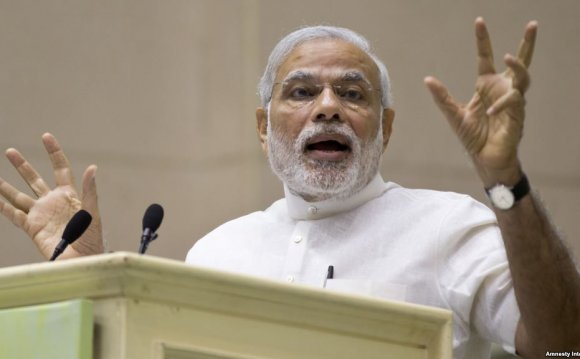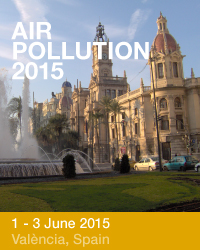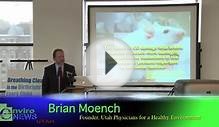
 The 23rd International Conference on Modelling, Monitoring and Management of Air Pollution was held in Valencia, Spain, organised by the Polytechnic University of Valencia, represented by Prof Carmen Capilla, the University of the West of England, represented by Prof James Longhurst and Dr Joanna Barnes, and the Wessex Institute, also of the UK, represented by Prof Carlos A Brebbia.
The 23rd International Conference on Modelling, Monitoring and Management of Air Pollution was held in Valencia, Spain, organised by the Polytechnic University of Valencia, represented by Prof Carmen Capilla, the University of the West of England, represented by Prof James Longhurst and Dr Joanna Barnes, and the Wessex Institute, also of the UK, represented by Prof Carlos A Brebbia.
The conference has a long and distinguished history, having started in Monterrey, Mexico in 1993, and more recently in Siena, Italy in 2013 and Opatija, Croatia in 2014. The meetings have attracted outstanding contributions from leading researchers and practitioners from around the world. The papers selected for publication and inclusion in the conference book have also been permanently stored in the Institute’s eLibrary as WIT Transactions on Ecology and the Environment ( These collected papers provide an important record of the development of science and policy pertaining to air pollution.
The Modelling, Monitoring and Management of Air Pollution series of conferences has attracted a global audience of academics and air pollution practitioners who contribute to the evolving understanding of the relevant sciences and policies presented at the meetings. The series has discussed important air pollution issues at international, national and local levels and, by nature of the diverse background of the delegates, has brought to the discussions a unique scale of perspective.
The subject of this conference series could not be more relevant and significant. In the last year, the World Heritage Organisation has identified air pollution as the world’s largest single environmental health risk, with around 7 million people dying annually – one in seven of the total global deaths – as a result of air pollution exposure, more than doubling the previous estimates. They also found that while 3.7 million deaths were attributable to outdoor (ambient) air pollution, more than half, ie 4.3 million deaths, were due to indoor sources, both mainly affecting low and middle-income households. They also examined PM monitoring data from 1600 cities around the world and found that although Delhi has the highest PM10 concentration overall in the period 2008-2012, the area classed by the WHO as Eastern Mediterranean was the most affected region. New and emerging epidemiological studies have also revealed that the main health effect of air pollution is cardiovascular (heart disease and stroke) and that ambient air pollution is now a Class 1 carcinogen, equivalent to tobacco smoke.
With more than half of the world’s population now inhabiting cities, it is alarming to note that only 12% of those reporting on air quality reside in cities compliant with the WHO air quality guideline levels. About half of the urban population, where air pollution is monitored, is exposed to air pollution at least 2.5 times higher than the WHO recommendations. Furthermore, in most cities where there is sufficient data to compare by town trends, air pollution is getting worse due to an increasing reliance on fossil fuels in power plants, dependence on private transport motor vehicles, inefficient use of energy in buildings, and the use of biomass for cooking and heating.
The complexity of air pollution matters cannot be underestimated. This complexity has profound effects for management, with examples of policies to reduce carbon emissions having detrimental effects on local air pollution, such as encouraging the use of diesel fuels in the UK. This, together with the transboundary effects of long-range and precursor pollutants, places a significant burden on governments to reduce the impact of their activities on public and environmental health, not only domestically but globally.
Public and media attention has also been captured; in part by the WHO’s figures and the increasingly common spectacle of visible smog. This data stresses the importance of this conference series which shows that the management of air pollution is one of the most challenging problems facing the international community.
The Conference acknowledges a wide range of air pollution issues and challenges, but a particular strength has been the attention given to regulatory and, more recently, market studies to air pollution management.
The scientific knowledge derived from well-designed studies needs to be allied with further technical and economic studies in order to ensure cost effective and efficient mitigation. In turn the science, technology and economic outcomes are necessary but not sufficient. The outcome of such research needs to be contextualised within well formulated communication strategies with the help of policy makers and all stakeholders to understand and appreciate the risks and rewards arising from air pollution management.
Opening of the Conference
The Conference was opened by Carlos who explained the importance of the meeting series to the Wessex Institute (WIT), whose objective is to facilitate the transfer of knowledge at international level.
The other activities of WIT are research, services to industry and publications. WIT Press is the publishing arm of the Institute and not only produces the Conference proceedings, but a wide variety of other books. The objective is also to continue launching International Journals in interdisciplinary topics not properly covered by other publications.
Support to industry in the form of software tools based on well-founded research is of primary importance for WIT – Carlos explained – as it helps to achieve transfer of technology, as well as demonstrate the relevance of WIT’s work. The current fields of interest are in the mechanical, aerospace and energy industries, where the demand for advanced software is more prominent.
Carlos stressed that the activities of the Institute are based on its interaction with industry, responding always to its needs. Over the years this has been the source of strength for the research carried out at WIT.
Carlos ended his welcoming remarks by hoping that the delegates will not only continue to attend the WIT series of conferences, but also consider collaborating with the Institute in other ways, including joint projects. He also invited them to visit the WIT Campus in the New Forest National Park, so that they can appreciate better the work of the Institute and find ways of working together.
Keynote Speakers
Prof James Longhurst, Co-Chair of the Conference and Executive Director of the Air Quality Management Centre at the University of the West of England, gave a challenging address on the topic of Air Quality from an historical point of view.
RELATED VIDEO












